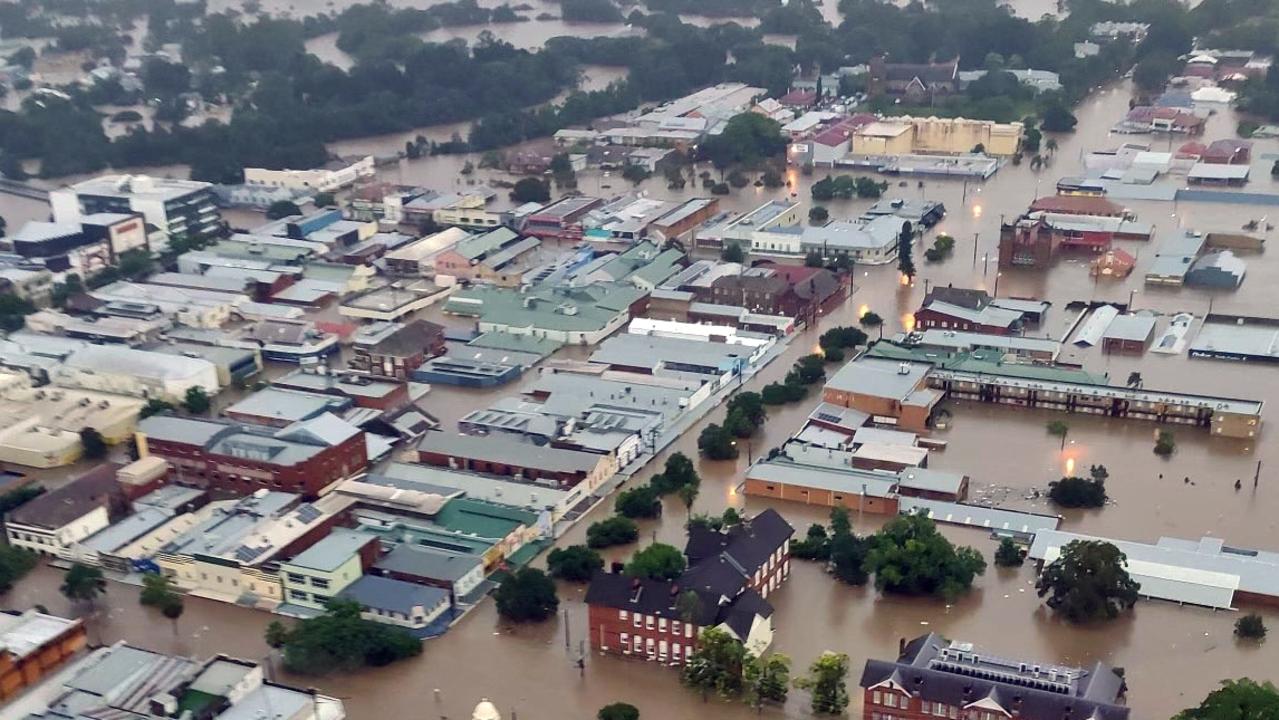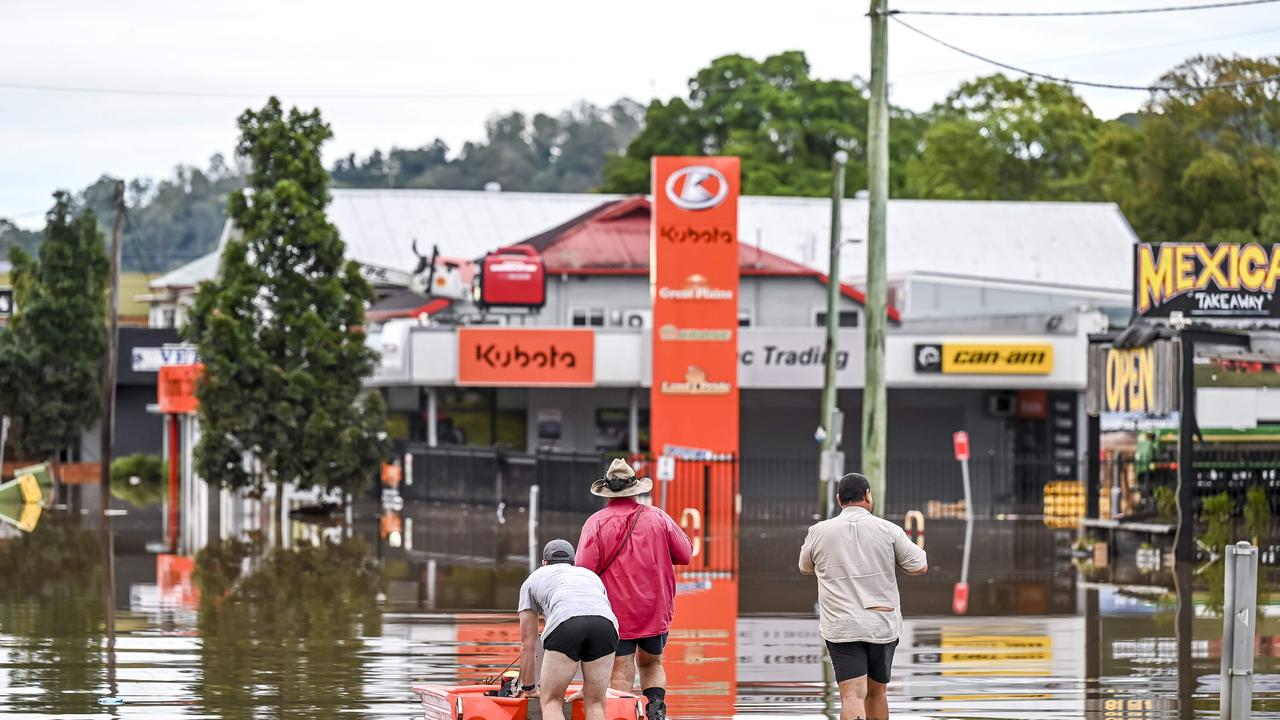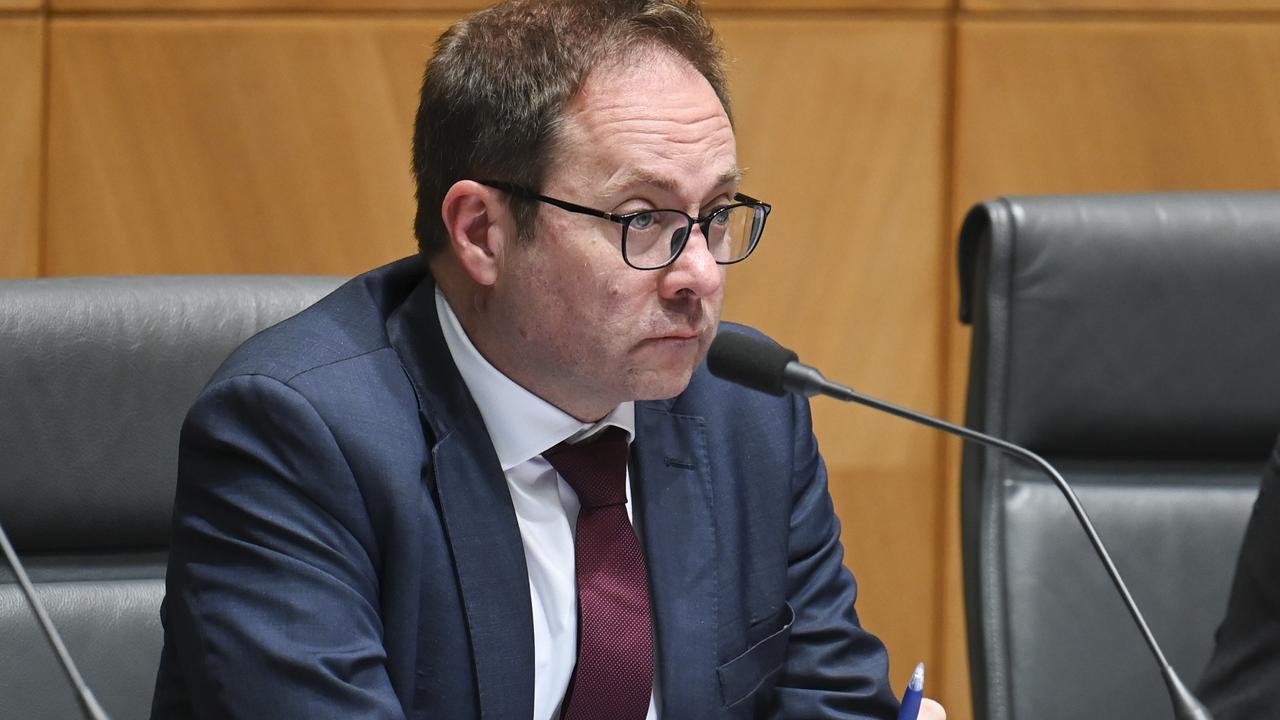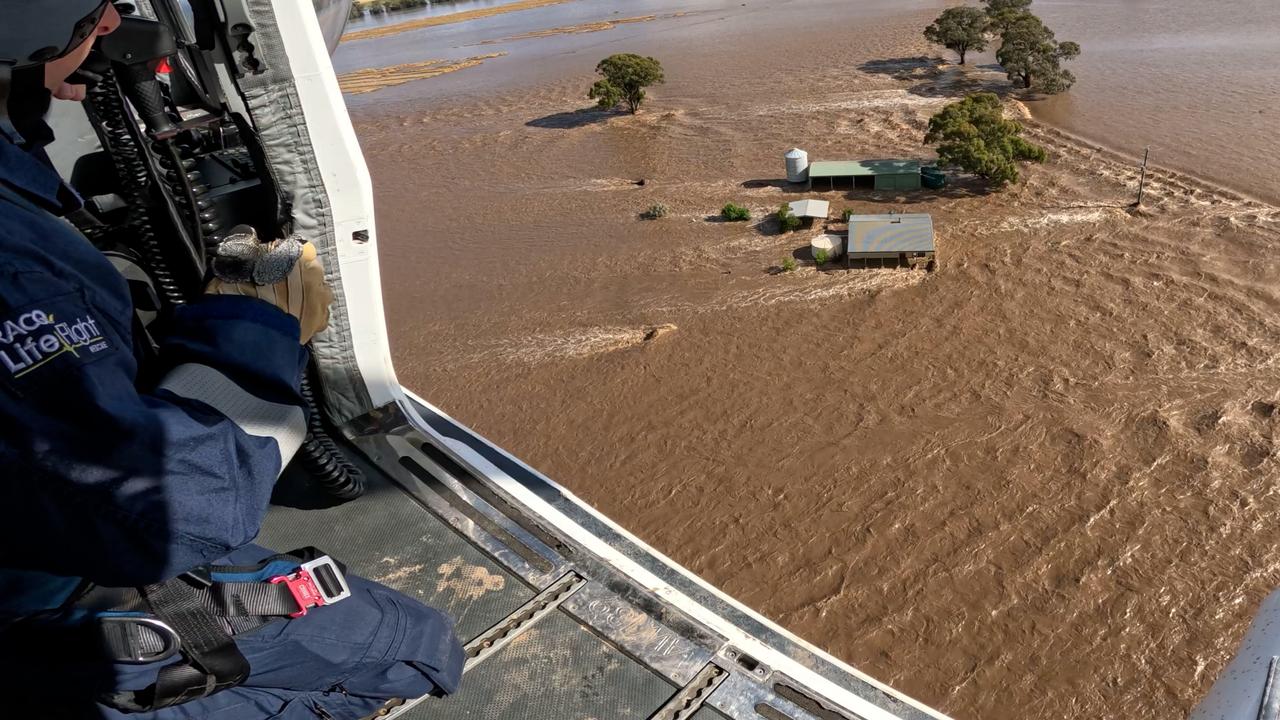Parliamentary inquiry finds insurers let down victims of major flooding in 2022
A parliamentary inquiry into the response of insurers to severe floods in several states in 2022 had let down many victims by failing to meet their obligations.
The response of insurers to major natural disasters needs to be overhauled after it “failed too many Australians” who were left devastated by floods in 2022, a parliamentary inquiry has found.
The house committee inquiry into insurers’ responses to the severe floods across Queensland, NSW, Victoria and Tasmania in the late summer of 2022 handed down its report on Friday, finding evidence of systemic problems, including inconsistent decision making, poor-quality expert reports and long delays.
More than 300,000 insurance claims were made over the flood events, totalling almost $7.4 billion.
“Insurers failed too many people in the wake of the 2022 major floods, which devastated communities across Queensland, NSW, Victoria, Tasmania and elsewhere,” the report said.
“Too many families and individuals were left behind. Too many people experienced unnecessary delays in getting their lives back to normal.”


Committee chair, Labor MP Daniel Mulino, said “too many cases were badly mishandled”.
“Inconsistent decision-making meant neighbours received different outcomes after the same event,” Dr Mulino said in the report.
“Long delays caused emotional, mental health and financial strain.
“More than two years on, many people still can’t go home. Initial offers were often too low, which was especially problematic for cash settlements.”
The committee has made 86 recommendations, including standardising key terms across all insurance contracts, including “rainfall runoff”, “storm surge” and “wear and tear”.
This would ensure insurers could not deny claims based solely on expert reports that do not link the damage observed with the reported cause, committee report said.
Dr Mulino also noted evidence heard on policy exclusions for pre-existing damage or lack of maintenance applied to parts of a building unobservable by policyholders, such as stumps. “Policyholders often pay premiums for decades with neither the insurer nor the insured knowing the state of the stumps,” he said.
“It is understandably frustrating when, after a flood, the floorboards are taken up and an insured person or family is told that they won’t be paid out due to the condition of the stumps. This aspect of coverage almost becomes a lottery,” he said.

The report also noted the growing number of uninsurable properties at very high risk.
Dr Mulino said “some form of government intervention” would be needed for such properties, including recommending that flood risk levels be disclosed through property conveyancing and rental agreements.
“More areas are going to become 1-in-100 over time,” he said.
“We have to figure out a way to deal with our housing challenge without building on floodplains.”
The inquiry also recommended states and territories develop buyback and resilience programs for households with very high flood risks that could not be mitigated.
Independent MP for the central NSW seat of Calare, Andrew Gee, filed a ‘supplementary’ report with extra recommendations.
Two people died in the floods in Eugowra in his electorate, “which was the scene of the largest helicopter rescue in Australia’s history”.
“Insurance companies treated their own policyholders in a disgraceful and disgusting way – it was ruthless, and it was appalling, and it must never happen again,” he said.

He said some insurers had tried to do the right thing, but many had let down people at their most vulnerable and should be held to account.
“For the first time a real spotlight has been put on the industry, and what it has revealed are unconscionable and systemic industry failures that exist at every step of the insurance process,” Mr Gee said.
“The evidence taken by this inquiry amounts to a withering and damning indictment of the insurance industry.
“While some in the industry may be ashamed of it, I suspect many are not.”



